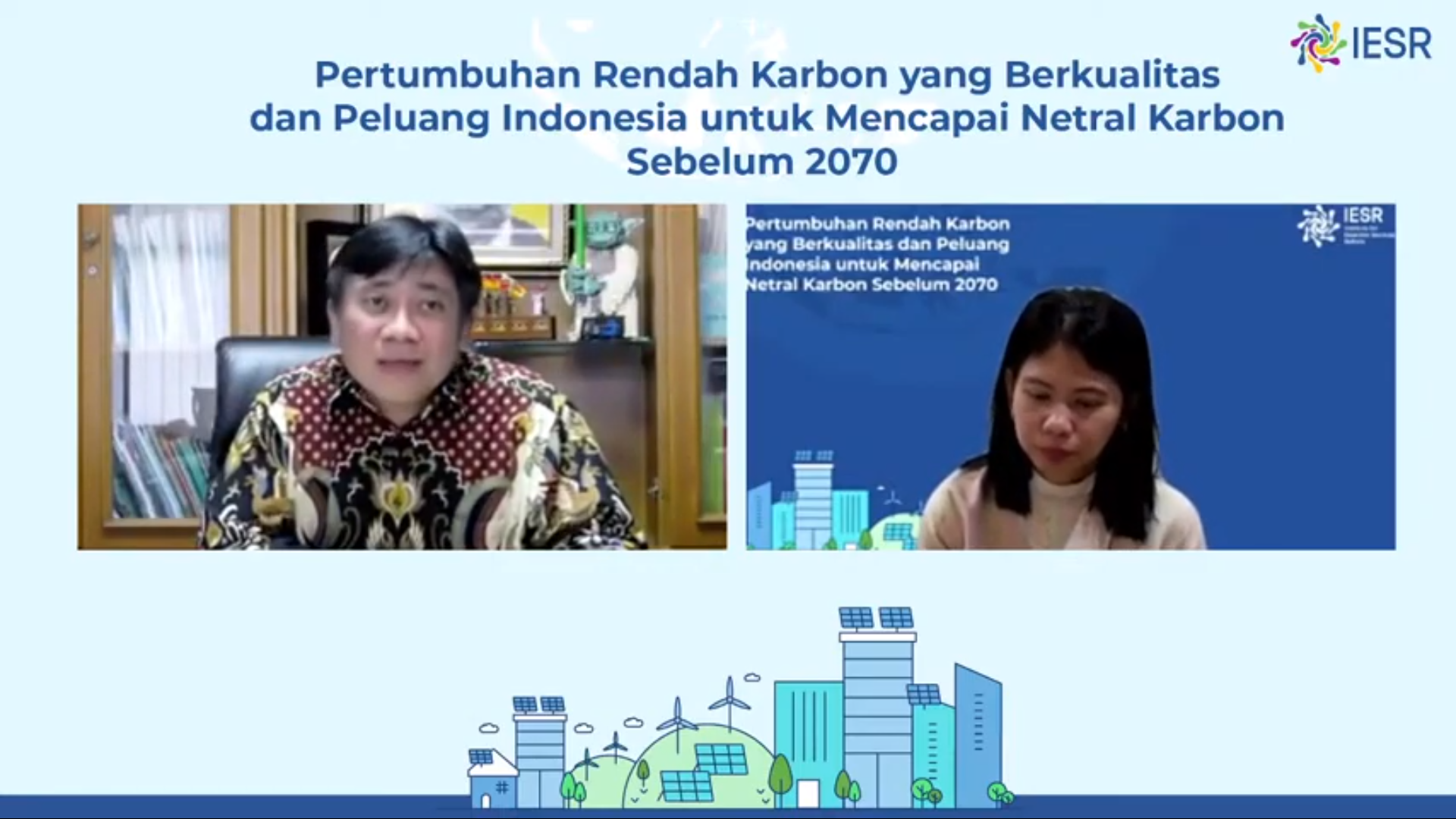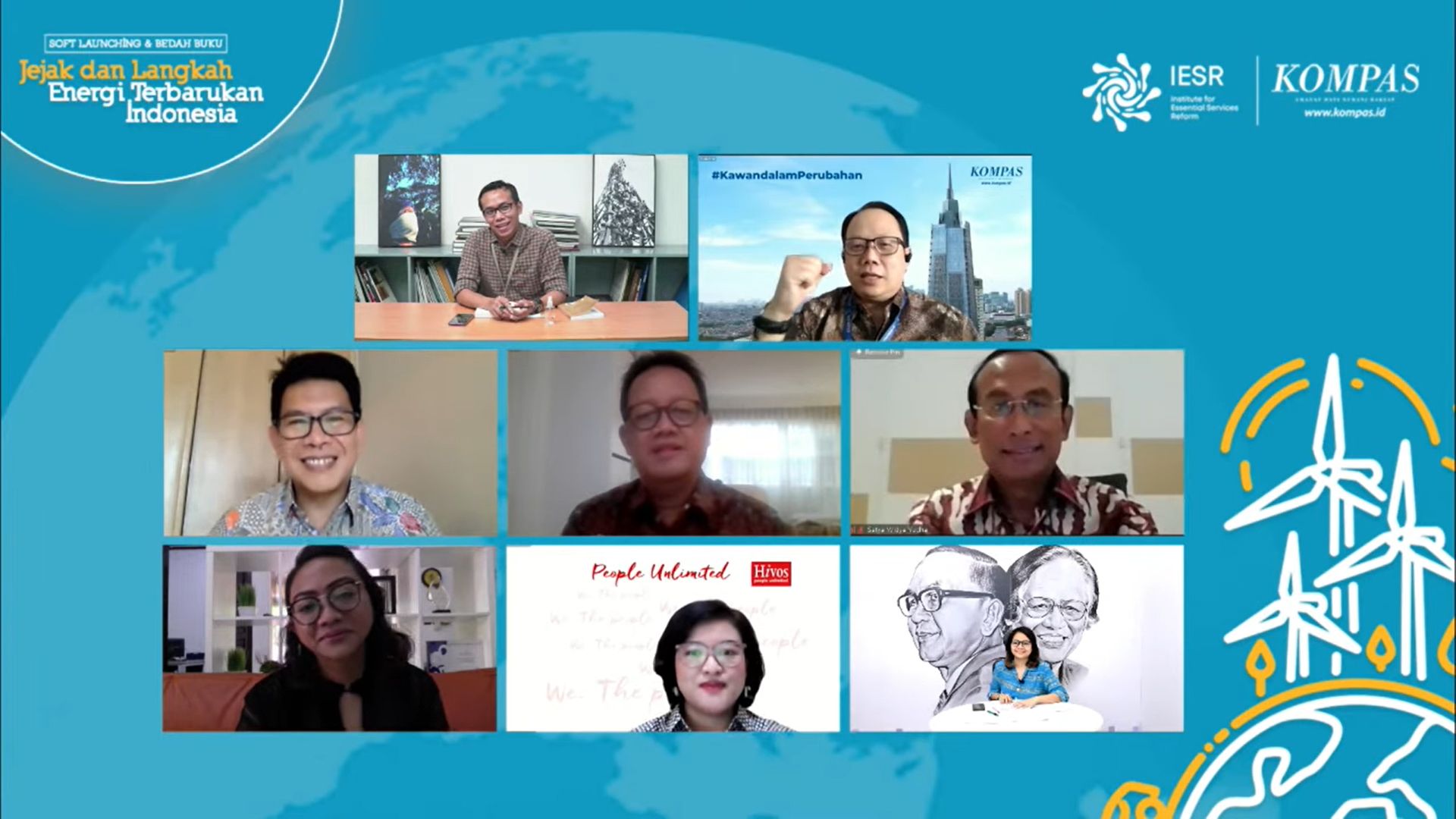Executive Director of the Institute for Essential Services Reform (IESR), Fabby Tumiwa, stated that developed countries should be responsible for reducing carbon gas emissions by supporting carbon neutral or Net Zero Emissions (NZE).
Read more on CNBC.

Jakarta, 28 April 2021 -- President Joko Widodo's speech during the Leader Summit on Climate Change which stated that he would seriously tackle the issue of the climate crisis was considered less ambitious by a number of parties. This is because President Jokowi's statement emphasizes the FOLU sector (Forestry and Land use Conversion), while the…

Jakarta, 27 April 2021 - Indonesia can protect the earth from carbon emissions by encouraging the acceleration of renewable energy development. The urge for the government to be more confident, courageous, and ambitious in developing clean energy was voiced in the discussion and book soft-launching "Footprints and Pathway for Indonesia's Renewable Energy" by Kompas journalists…
